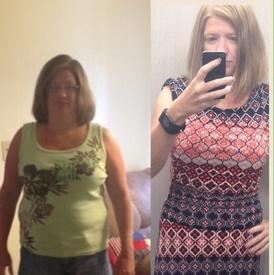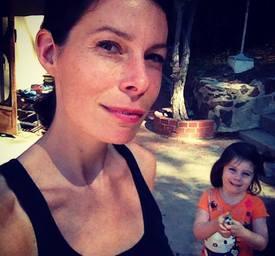Am I counting my calories wrong ?

Cinarocket
Posts: 49 Member
I think I do a good job at keeping track the food and quantity that I consume but something I never track are the little nutriments that are necessary to give taste ... such as pepper, salt, cream, butter, oil, etc...
So for example I cook pasta and I will count everything but the salt in the boiling water, the oil in the boiling water, the pepper that goes on it after,sour cream, maybe a piece of butter and the tiny bit of parmesan i may add in.
I'm worried because I know that oil, butter and creams in general are quite bad but they're ofc necessary most of the time and of course they're really tiny quantities but maybe it makes a big enough difference so that I should count on them to make sure i don't underestimate the amount of calories I eat?
So for example I cook pasta and I will count everything but the salt in the boiling water, the oil in the boiling water, the pepper that goes on it after,sour cream, maybe a piece of butter and the tiny bit of parmesan i may add in.
I'm worried because I know that oil, butter and creams in general are quite bad but they're ofc necessary most of the time and of course they're really tiny quantities but maybe it makes a big enough difference so that I should count on them to make sure i don't underestimate the amount of calories I eat?
0
Replies
-
Butter, cream and oil ...are you joking?
Yes you need to count them
Spices you dont0 -
yes you need to count the oil , butter cream all those little bits add up... use a teaspoon to measure or a scale to weigh them and see how many extra calories you are eating.. a teaspoon of oil is 40 calories.. so 2 or 3 of these adds up.
salt pepper and spices unless in large amounts are not usually added,,0 -
I measure and weigh oil and butter. So yes, I count them. Evoo about 100 calories for 2 teaspoons0
-
One day measure out what a tablespoon of oil looks like, how long it takes to pour, etc. Same for sour cream and cheese and butter. Then you can guesstimate as you log without measuring each time.
Or use visual aids. I think a tablespoon is like the top segment of your thumb. A teaspoon is like a the top segment of a finger. An ounce of cheese or meat is like a finger. There's a 'hand chart' here. http://nutrimorphosis.com/tag/portion-control/
WW has a good one but I can't find it.
You don't need to add oil to pasta water. Cooks Illustrated tested it and it does nothing, they found.0 -
Your first mistake was adding oil to your pasta water. I'm not Italian and even I know that's wrong. :P
But yes all the oil and butter used for cooking must be counted. If you're tracking sodium then ya you count the salt too. And yes you must count the cheese and sour cream you put on your food. Full fat dairy is one of the most high calorie foods you can eat, so it has to be measured out before it goes on there.0 -
The oil in the water can be tricky because most of it is getting poured down the drain but for everything else, especially butter, cream and sour cream yes. I don't count condiments such as mustard, ketchup, relish as long as it's only a little bit. However, I do count mayonnaise.0
-
I add a pat of butter to my eggs and I always count it. If you use small amounts (I do too), they don't add up to much, but I do count them.I wouldn't stress about it too much though.0
-
Yes, you absolutely need to count them. No need to add salt to your pasta. It comes with it's own sodium count (look at the ingredients). Throw away the salt shaker and stick to herbs.0
-
Yes, count them. Depending on how much you use, you could be miscounting by 100s of cals per meal. Butter and oil are fairly calorie dense and add up fast.0
-
yup, a few missed TBSs of high calorie foods can kill your deficit. Like PP said, weigh these things on a digital scale. I try to weigh everything except lettuce lol, but especially anything so dense in calories- nuts, nut butters, oils, dairy etc0
-
Invest in a food scale that measures in both grams and ounces. Same goes with measuring utensils (Tbsp, tsp, etc., and round them off with a knife. When I am cooking my grains for the week, I measure out by kg and place in baggy for future use. That way, I don't have to bother with measuring stuff all the time - it's gets tiresome!0
-
Alright thanks.
Bad news for me i'm afraid. I never use more than a Tbsp of those ingredients and it's always really tiniy i'd guess they add up to something like 100 kcal per day on average which is somewhat small but it's still 100 calories that need to be counted after all0 -
Oil in pasta water...which of course means no sauce sticks to the pasta then....
And yes, you have to count that stuff.0 -
Assuming you have at least a tablespoon of oil or butter or cheese a day that you don't log, it might be closer to 200, but the easiest thing to do is measure for ONE TYPICAL DAY and see how much it is.Alright thanks.
Bad news for me i'm afraid. I never use more than a Tbsp of those ingredients and it's always really tiniy i'd guess they add up to something like 100 kcal per day on average which is somewhat small but it's still 100 calories that need to be counted after all
It doesn't necessarily all need logged if you're consistent with it and figure it into your calorie goal. That's how WW works with 'free produce'. It's not that it's 'free' so much as how much a person typically eats under those conditions is factored into their deficit level up front, so it's pre-logged, in effect.
So if you want to take in around 2000 calories a day and think you use 100 in oil, etc., that you don't want to bother logging, aim for 1900 instead and have your 'free oil', but be mindful of having only 'pre-counted' about a tablespoon.0
This discussion has been closed.
Categories
- All Categories
- 1.4M Health, Wellness and Goals
- 398.2K Introduce Yourself
- 44.7K Getting Started
- 261K Health and Weight Loss
- 176.4K Food and Nutrition
- 47.7K Recipes
- 233K Fitness and Exercise
- 462 Sleep, Mindfulness and Overall Wellness
- 6.5K Goal: Maintaining Weight
- 8.7K Goal: Gaining Weight and Body Building
- 153.5K Motivation and Support
- 8.4K Challenges
- 1.4K Debate Club
- 96.5K Chit-Chat
- 2.6K Fun and Games
- 4.8K MyFitnessPal Information
- 12 News and Announcements
- 21 MyFitnessPal Academy
- 1.6K Feature Suggestions and Ideas
- 3.2K MyFitnessPal Tech Support Questions









